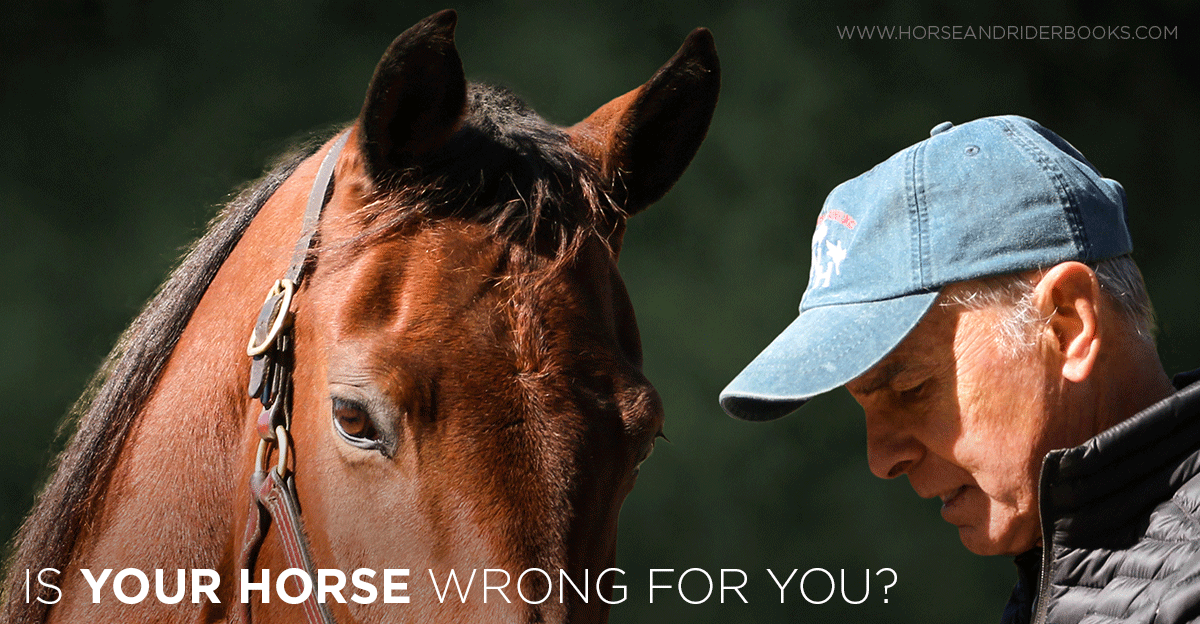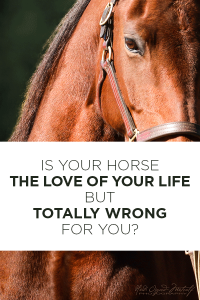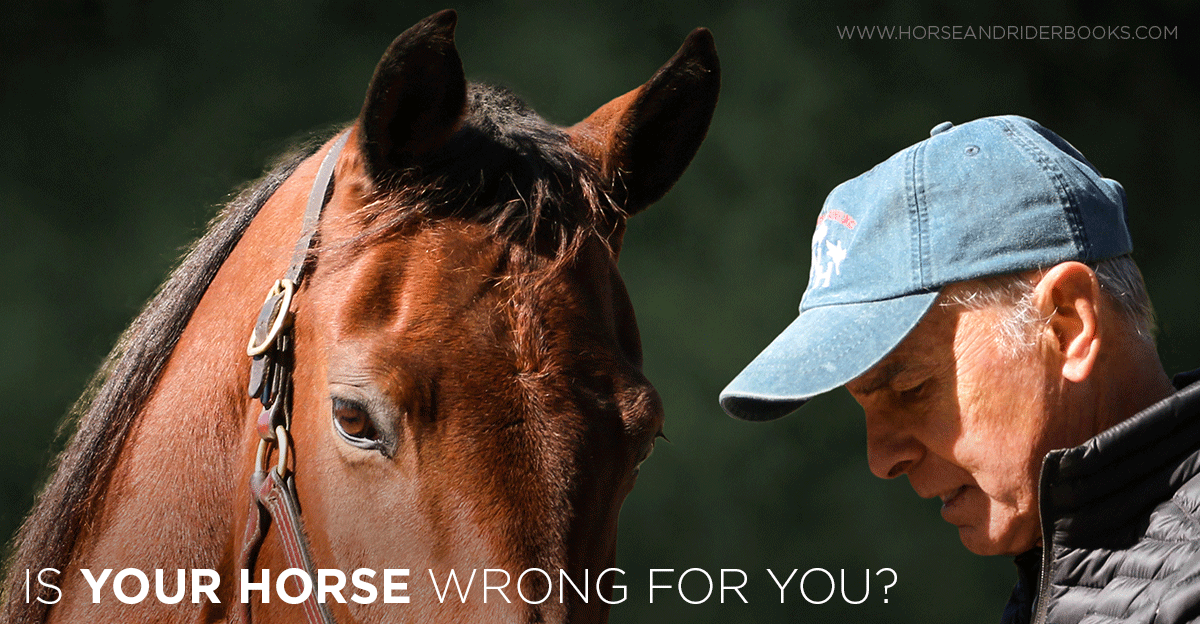
In his book KNOW BETTER TO DO BETTER, horseman, Tevis-Cup-Buckle-winner, and gold medalist in eventing Denny Emerson examines the question of whether or not you keep the horse that is the love of your life…but is completely wrong for you. Read on:
Hesnogoodbutilovehimsoicantgetridofhim
If your mental machete is sharp enough to hack through the verbiage of this heading, you can probably also understand and maybe even empathize with the dilemma it implies. Most of us have found ourselves possessed of or possessed by the wrong horse. Wrong for any of a thousand valid and invalid reasons: too hot to ride, too unsound, too poor a mover, too limited over a fence, too unpleasant in the barn, too old, too young, too big, too small—too unsuitable for what we actually need to have.
The Unsuitability Game
Sometimes the unsuitability has come in the flash of an eye. He hobbles in from the field one morning with a non-life-threatening but athletic-career-ending injury. Or, as with incipient navicular disease, it has been sneaking up, month by month. Or we’ve had one too many spin-and-fall-off episodes. Or too many refusals at too many events or shows. Whatever and however the cause or reason, deep down we know that this is not the horse that can take us to places we want to go.
Now What?
If the horse is a pet, and you don’t care if you actually ride or not, and if the unsuitability only renders the horse unfit for riding, you can just keep on keeping on. Or if you are rich enough to turn him into a pasture ornament and still get one or more other horses that you can ride, you are also just fine. You aren’t the person I’m addressing.
 But what if you do love to ride, don’t have extra cash under your mattress, can’t successfully ride this one, but can’t bear to part with him? This is a real dilemma that thousands of riders face every day and there’s no easy, one-size-fits-all answer. In the case of long-term unsoundness, there’s the euthanasia issue. In the “old days,” when horses were utilitarian and there was little cash for luxuries, this was done all the time out of sheer economic necessity.
But what if you do love to ride, don’t have extra cash under your mattress, can’t successfully ride this one, but can’t bear to part with him? This is a real dilemma that thousands of riders face every day and there’s no easy, one-size-fits-all answer. In the case of long-term unsoundness, there’s the euthanasia issue. In the “old days,” when horses were utilitarian and there was little cash for luxuries, this was done all the time out of sheer economic necessity.
Hard Answers
I know lots of people who basically look at the issue like this: This horse is lame. It’s not a question of whether he will be put down, but when. If I can’t give him away, and can’t afford to keep him and another, then now is better than later since it’s unavoidable anyway, and just a matter of when. For those who aren’t able to face this, I guess they just have to stop riding while they wait for the horse to get old enough to die.
There are plenty of sound horses, though, but wrong for other reasons, like some I mentioned. Just because a horse might be a bad jumper or not have a fancy enough trot to make it in dressage might not mean he can’t make a nice trail or pleasure horse. The rider has to choose. “Do I want a horse that’s a round peg that I’m trying to force into the square hole, or would he be happier in a more fitting job, and would I be happier with one that seems suited to my ambitions?”
The One Key
There is one key in all of this. The right choice has to be your choice. You are not a bad person if you put down a lame horse now rather than four years from now, unless you think you are. You don’t have to be well mounted, but you probably should be if your main aim is to get ahead in your riding.
So, look at the horse you have. Look at your real goals. Then decide a best course of action. Or not. (Since putting this off is what you’ve been doing anyway!)
KNOW BETTER TO DO BETTER by Denny Emerson is available from the TSB online bookstore.
CLICK HERE for more information or to order.
Trafalgar Square Books, the leading publisher of equestrian books and DVDs, is a small business based on a farm in rural Vermont.

